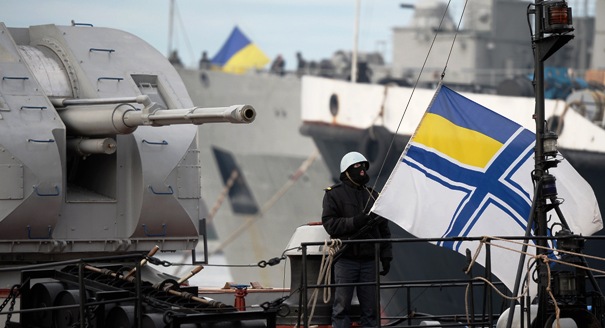Who would have ever thought that Ukraine, in the second decade of the 21st century, would provoke such a global crisis bringing the world to the edge? The political and intellectual world has demonstrated how unprepared it is for the new challenges and how difficult it is—even for the best and experienced minds—to grasp the new reality.
Let’s look at what today’s best minds are thinking about the Ukrainian situation. Here is what one of the key international gurus, Henry Kissinger, has said: “If Ukraine is to survive and thrive, it must not be either side’s outpost against the other—it should function as a bridge between them” (that is between East and West—LS). Hm… But this is exactly what Ukraine has been doing for years—drifting between Russia and Europe and living in a grey, murky zone that did not make Ukraine happy. Today millions of Ukrainians have chosen a European trajectory.
So what to do with them now? Force them to continue serving as the “bridge?” Being an experienced observer of the international scene who meets with President Vladimir Putin regularly, Kissinger has to understand that this “bridge” will be guarded by one force only!
Another Kissingerian quote: “The West must understand that to Russia Ukraine can never be a foreign country.” Actually Kissinger repeats what Putin allegedly said to George W. Bush in 2008 when he tried to persuade the American president that Ukraine is not a state but something weird and unsustainable. Not being “a foreign country” means that Ukraine has to agree to be the Russian protectorate or area of influence which is the same. Welcome back to the post-Yalta world! I am not sure that this will be the recipe to end the Ukrainian crisis.
Now I invite you to look at what another respected observer, former Ambassador to the USSR, Jack Matlock thinks on Ukraine in his essay “Ukraine: The Price of Internal Division,” March 1, 2014. He agrees that “Russia has interfered.” But (!) “it is not Russian interference that has created Ukrainian disunity but rather the haphazard way the country was assembled from parts that were not always mutually compatible.” This is a true revelation. I had not noticed that Ukraine was splitting before the Russian intervention. I would argue that prior to Russian interference, the Crimean population had not been eager to get Crimean independence, and that the southern and eastern regions had been pretty peaceful. The Kremlin’s support of the “Russian speaking population” has dramatically escalated and exacerbated the situation.
I have to admit that another of Ambassador Matlock’s observations, or rather conclusions, left me totally perplexed. Here is what I have in mind: “Obama’s ‘warning’ to Putin was ill-advised. Whatever slim hope that Moscow might avoid overt military intervention in Ukraine disappeared when President Barack Obama in effect threw a gauntlet and challenged him.” Actually, I have heard this argument from the Kremlin’s propaganda people. But I did not expect that the U.S. ambassador would repeat it. Well, I can only remind the ambassador that Moscow had started to interfere in Ukrainian domestic affairs before Obama uttered anything. What was the reason for the Moscow trade war with Ukraine in August 2013? Was it also Obama misbehavior? Anyway, this is an interesting way to explain politics. Putin’s crack down on the domestic opposition in Russia also could be explained as reaction to Obama’s rhetoric or some “ill advised” action. If this is true, and Russia’s zigzagging policy and developments could be explained by Putin’s desire to oppose what he sees as Obama’s whims, then we need to radically change our view of the outside world…
We have to thank Ukraine—this country provides exciting depths in political perception and mentality.





